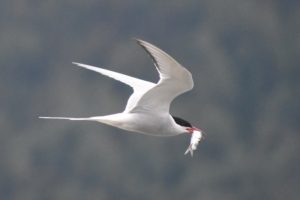Bird Studies & Conservation Intern Sought
- Juneau Audubon Society is seeking an intern based in Juneau, Alaska. The position is designed to give valuable work experience to those aspiring in careers of biology, research, wildlife, non-profit or environmental work.
- Typical duties include Tree Swallow nest box checks, assistance with hummingbird banding and Arctic Tern nest monitoring; data entry and document scanning; help with other wildlife projects, conservation education or public outreach. Independent projects utilizing data gathered during the summer may be available according to Intern interests and organization needs. Excellent work experience for students!
- Work dates: Approximately April 15 through July 20, 2024. There is some flexibility to accommodate finishing of courses and other commitments, especially at the beginning and end of season.
- Schedule: Approximately 25 hours per week. Occasional weekend and early morning work will be required.
- Compensation: $13/hr up to 375 hours
- Desired skills: Interest in wildlife management, biology, and working with non-profit organizations; basic birdwatching skills; data entry and use of spreadsheets preferably Microsoft Excel; an introductory college-level biology or natural resource course passed; ability to hike several miles a day; ability to take neat and complete field data.
- Volunteer needs to have their own housing near Juneau, a cell phone, health insurance, and be age 18 or older.
- All necessary field equipment provided.
- Transportation assistance (fuel for personal vehicle- preferred, or bus passes/bike loan) available.
- As a small non-profit organization JAS is not able to provide transport to Juneau or housing.
- Interested applicants please send brief letter of interest and CV to: info@juneau-audubon-society.org
- Deadline: Open until filled, but please submit by 2/28/25



